In India, an environmental solution that's good for farmers, cows and climate
K.S.M. Dinesh is not your typical Indian dairy farmer. He holds degrees in engineering and biotechnology, has a passion for green business and a father who was able to give him a small loan to start raising cows in 2017.
“When I told my father I didn’t like engineering and wanted to start a cow farm, he gave me only six months to try it,” says Dinesh. “So I named the farm after my grandparents, so my father will never let it shut down!”
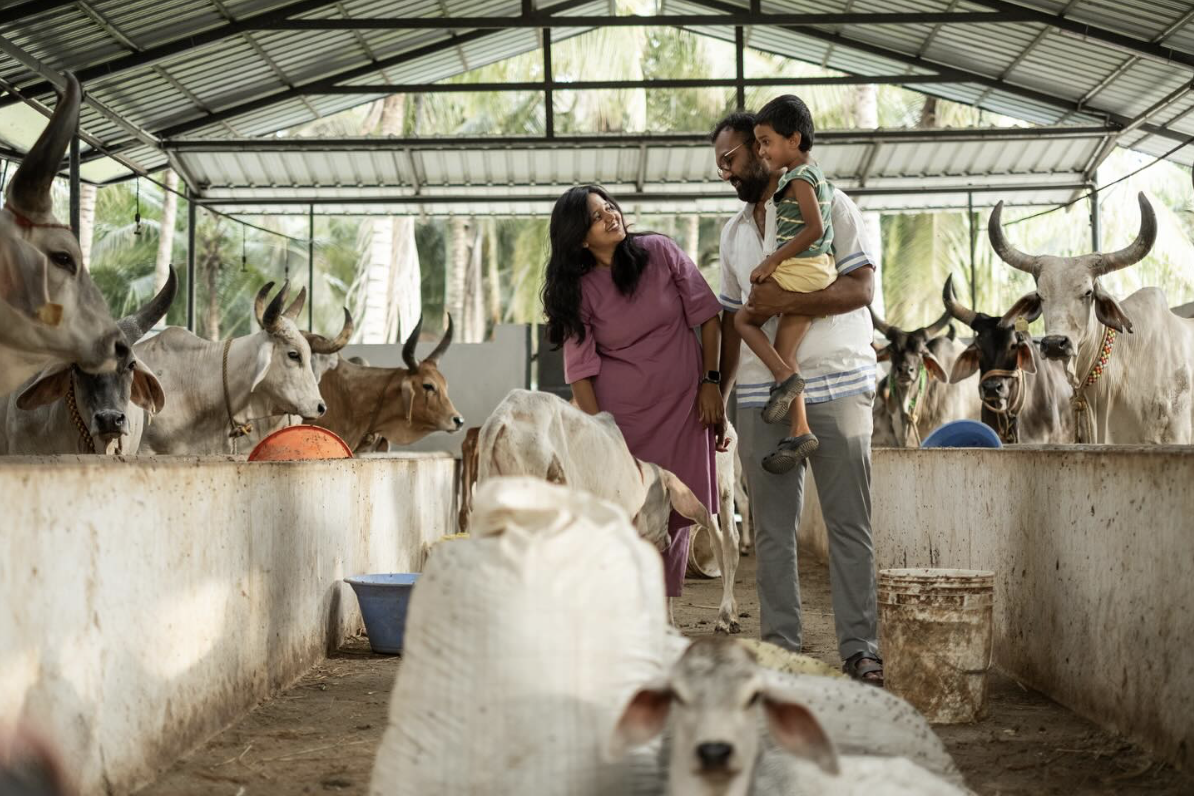
It was a rocky start — Dinesh knew nothing about cows. He did his own research, consulted a helpful uncle and purchased his first cow in 2017. The animal was so terrified by her long journey to the farm that “she smashed up everything in sight,” says Dinesh. “We were also terrified.”
Over the years, with much trial and error, Dinesh gained his footing, growing his herd and installing a biogas generator to convert manure into electricity. And in 2024, he found his way to a new dairy entrepreneurship program launched by the global nonprofit Environmental Defense Fund and the Kumaraguru Institute of Agriculture in Coimbatore, in the southern Indian state of Tamil Nadu.
That program proved to be the game-changer that helped Dinesh launch his business — Paal Dappa, a sustainable dairy farm that sells fresh milk, minimizes waste and reduces climate pollution. He’s now part of a growing effort to bring climate-smart practices to India’s vast, largely informal dairy industry.
More milk, less methane
India produces more milk, and has more dairy animals, than any nation in the world. Its 300 million cows and buffalo supply milk for more than 1.4 billion people, nearly half of whom rely on dairy products as a major source of protein. Yet these animals, so essential to India’s food supply and culture, produce on average 33% less milk than cattle worldwide, in part because of a lack of veterinary care and balanced nutrition. They also produce nearly half of India’s emissions of methane, the powerful climate pollutant that is making the planet hotter, faster.
The low productivity and high methane footprint of India’s dairy industry makes life even harder for India’s 80 million dairy farmers, most of whom own just a few cows or buffalo and an acre of land and already see precious little profit from their holdings.
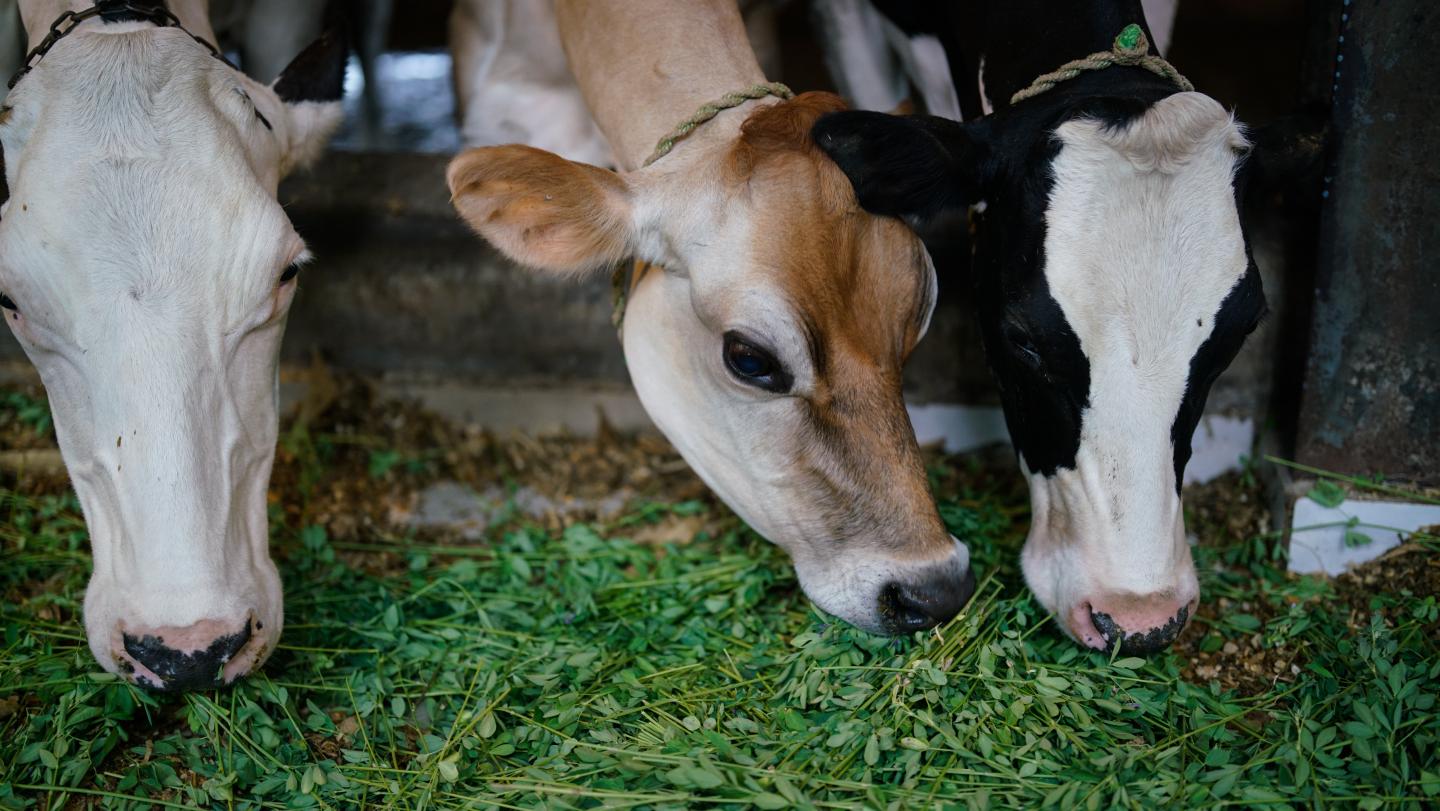
Excessive heat, drought and flooding, made more intense by climate change, puts their crops and animals at risk. Heat stress can reduce an animal’s milk production by 20-30%. By 2085, heat stress could reduce India’s overall milk production as much as 25 percent, according to a study in the science journal The Lancet. That’s a bleak outlook for farmers.
The good news is that simple strategies to keep animals healthier and more productive benefit farmers and the climate. For example, feeding cattle a calibrated mix of green and dry fodder — all local and seasonally available — is more nutritious than randomly feeding them whatever’s on hand on a given day. This simple change doesn't require any investment and can boost milk production 20%, while also reducing methane emissions 14% percent, according to research from India’s National Dairy Development Board. Housing structures that use locally available material can protect animals from rising heat and humidity. And knowing the basics of modern animal husbandry, with access to affordable feed, medicines and other farm essentials can help smallholder farmers maintain healthier and more productive livestock.
Environmental news that matters, straight to your inbox
Enthusiastic entrepreneurs
Sharing this advice with 80 million people, most of whom have little formal training in animal husbandry, let alone internet access, is no small task.
"Small farmers really have no way to get hold of medicines, supports, supplies, know-how,” says veterinarian Abhinav Gaurav, who leads EDF's dairy livestock work in India.
EDF’s previous partnerships in India had demonstrated that rural entrepreneurs, given simple training and business support, could efficiently spread money-saving climate-smart agriculture advice to hundreds of their farmer customers. So Gaurav worked with local experts to begin training a cadre of dairy entrepreneurs. The 3-month program, launched in 2024, has now trained 120 rural entrepreneurs, with 130 more on deck, in dairy science, livestock rearing and business, with a focus on sustainable and climate-smart strategies that also improve bottom lines.
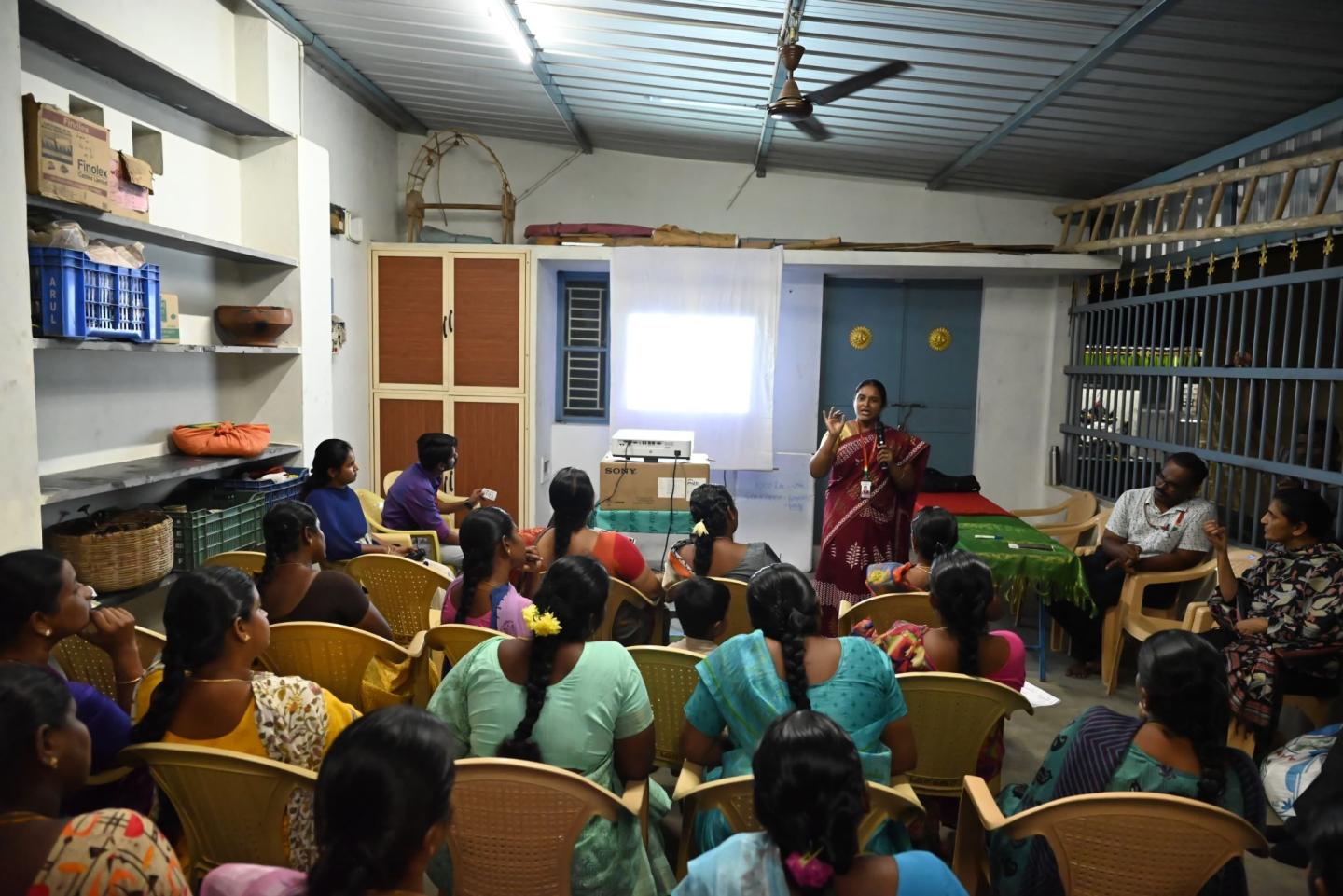
Some of the trainees, like Dinesh, are showcasing these strategies on their own farms, while others, who sell everything from feed to breeding services, are dispensing climate-smart, profit-boosting advice as a way to build trust with their customers as they grow their small businesses.
The program helped Dinesh get federal funding to expand his herd from 30 cows of various breeds to 150 Kankrej cows, a hardy indigenous breed. He also learned how to improve the nutritional quality of his feed, boosting his milk production. In 2025, with milk flowing, biogas electricity from manure for his small processing plant, and a side business selling excess manure as fertilizer, he was able to launch his subscription-based milk delivery service, making twice daily deliveries of fresh milk to customers in three cities. The farm’s sustainable ethos is central to his marketing.
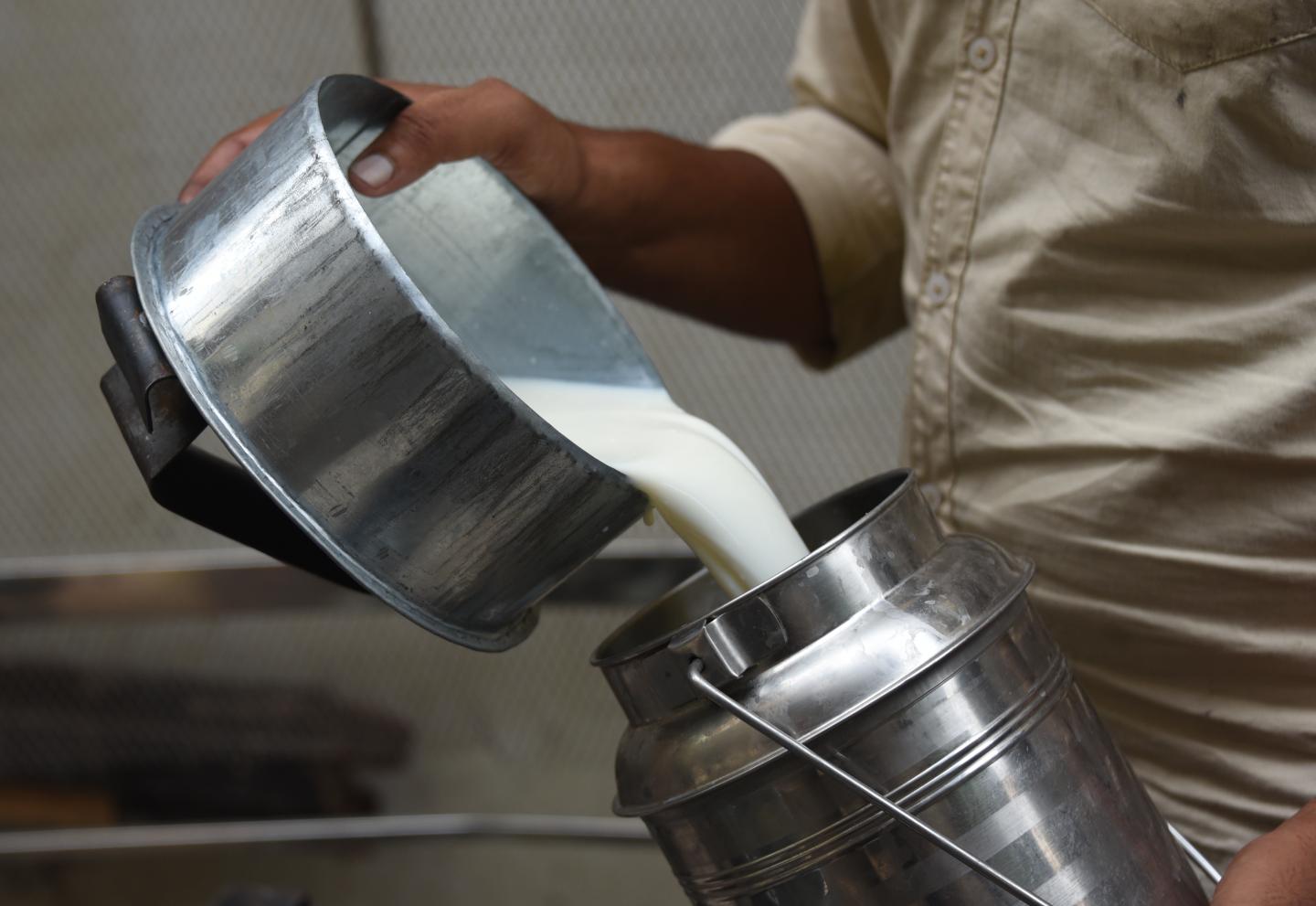
Shanthra Prakash, a recent college graduate with a degree in agriculture, used her entrepreneurship training to found a farmer cooperative that unites local women to sell their milk cooperatively. She recruited and now leads a group of 300 rural women, sharing advice on economic empowerment and climate-smart strategies.
Another graduate of the program, Indumathy, already employed her neighbors to make incense and other organic products on her farm. She used her training to launch a new business selling a nutrition-boosting feed supplement she developed from sugar cane waste from her fields. She plans to share knowledge and source raw materials with a network of women in neighboring villages, building a cadre of woman-led, climate-smart businesses.
Opening doors
Each entrepreneur plans to build a network of about 200 local clients — that means with just the first two batches of trainees, the program has the capacity to reach about 50,000 small dairy farmers with profitable, climate-smart advice. Encouraged by the pilot program’s success, the Tamil Nadu state government has pledged to train 10,000 more dairy entrepreneurs. In Maharashtra, the state where Mumbai is located, the state government has expressed interest in bringing the program to 5,000 Maharashtrian entrepreneurs.
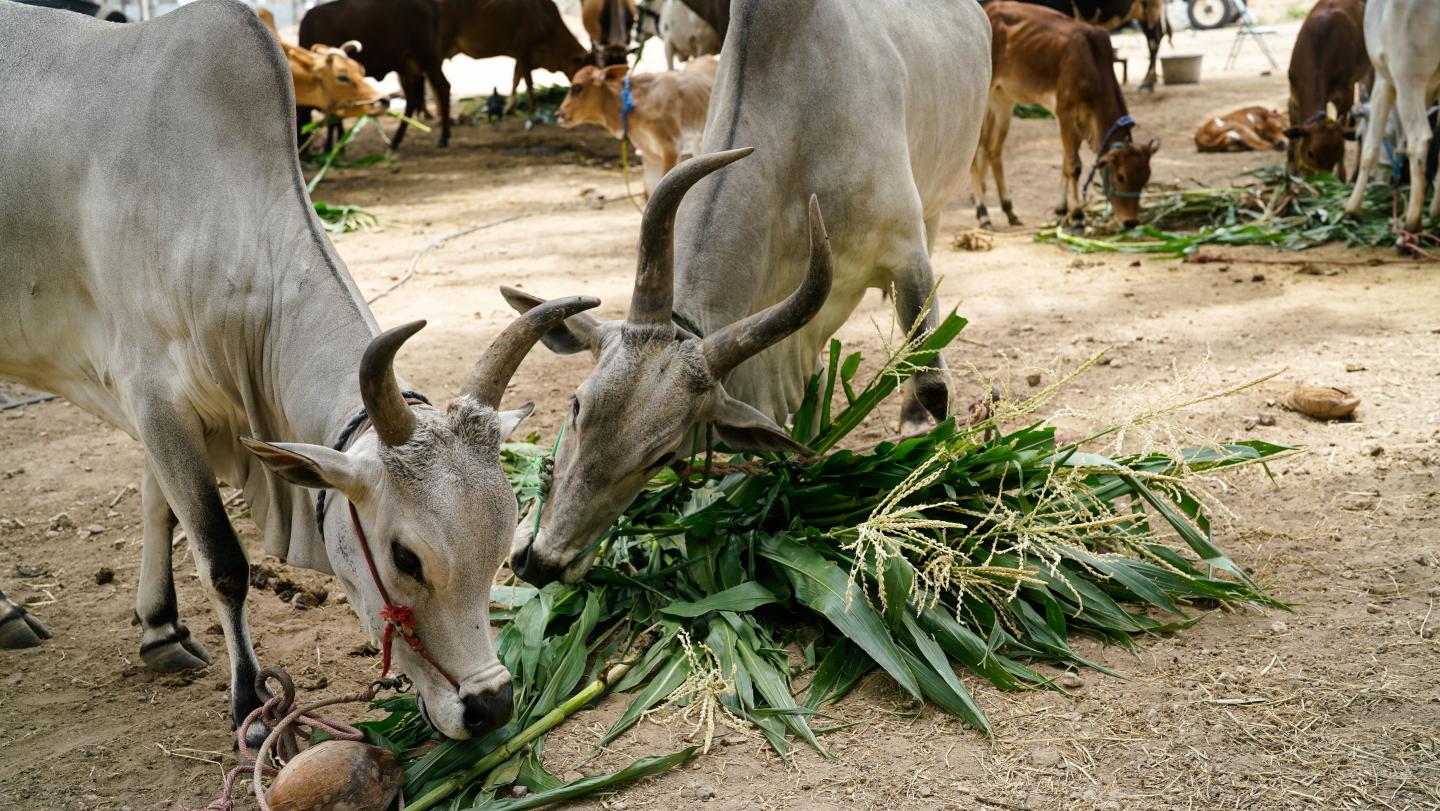
India’s National Dairy Development Board, which works with some 40 million dairy farmers nationwide, has also taken an interest. Prakash and a few other trainees are working with NDDB to establish a pilot one-stop-shop for dairy farmers outside Coimbatore, where they can bring in their milk to sell cooperatively, buy quality feed at a discount and get climate-smart livestock advice.
Gaurav is also working to bring the entrepreneurship curriculum to the Indian government’s national web portal, where it will be available digitally to anyone with internet access.
It’s a small effort, says Gaurav, but an important proof point that climate progress and economic development can go hand-in-hand. “We are building evidence to show that this works,” he says. “Entrepreneurship is a driver to start those larger policy discussions.”
Dinesh is also confident that climate-smart dairy strategies will spread. “They say bad news travels fast,” says Dinesh. “In villages, also the good news travels fast.”